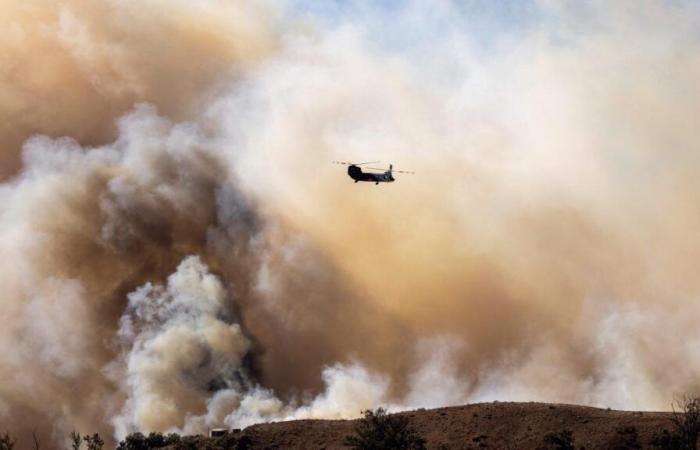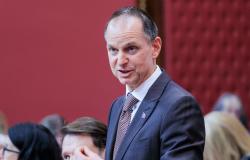LCalifornian authorities asked thousands of people to evacuate Thursday, facing a massive fire that destroyed dozens of homes and continues to worsen in the hills of the northwest of the Los Angeles region.
The Mountain Fire broke out near the town of Camarillo on Wednesday. It is burning in an area where about 30,000 people live, according to Ventura County firefighters.
Its cause is still unknown, but the flames spread quickly thanks to powerful winds, with gusts of up to 130 km/h. It threatens more than 3,500 homes and has already consumed nearly 8,100 hectares.
“We stayed up all night watching what was happening. I didn’t sleep,” Erica Preciado told local television station KTLA, evacuating the area with her family. “We’re just trying to get to safety. I didn’t even know what to take. I just put everything I could into my car,” she added, on the verge of tears.
Authorities are currently trying to assess the number of homes destroyed. According to local media present on site, there are dozens of them. “Everything is gone,” said a man with a broken voice on KTLA, who lost his home where he had lived for 27 years.
After two rainy winters which provided a relative respite, California is experiencing a very active fire season this year.
The vegetation reformed thanks to the precipitation of the last two years has dried up and becomes a powerful fuel. This summer, the “Golden State” suffered from several heat waves, signs of global warming. In July-August, it suffered the fourth largest fire in its history.
Dry fire hydrants
Ventura County fire officials said they are devoting all their resources to this fire.
Helicopters dropped water on the area throughout the night. Several hundred firefighters defended the houses with fire hoses.
The fight against the flames is so intense that the hydrants to which the fire trucks connect were dried up by demand at one point on Wednesday evening.
“We flushed the water systems,” Ventura County Fire Chief Dustin Gardner said at a news conference Thursday. This forced his teams to carry water to different homes.
Also read
Climate warming is increasingly fueling fires






